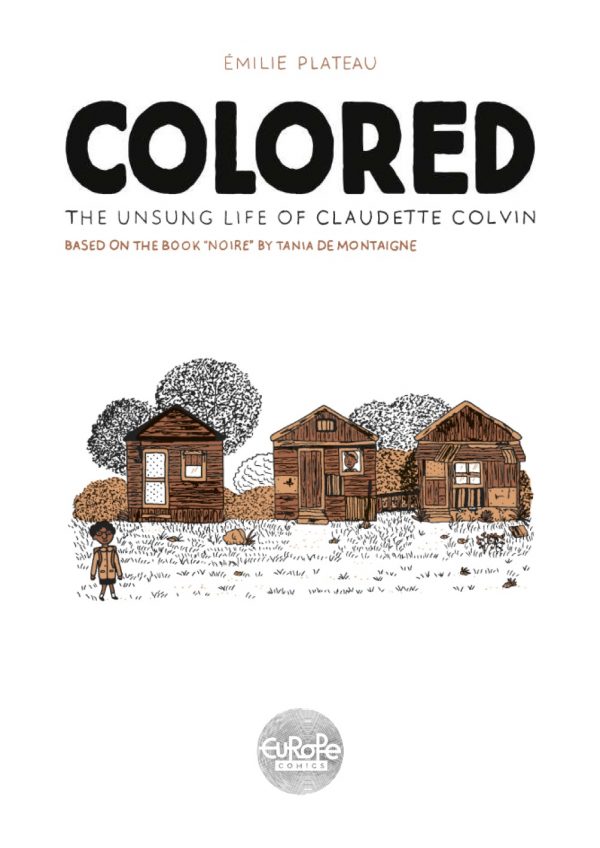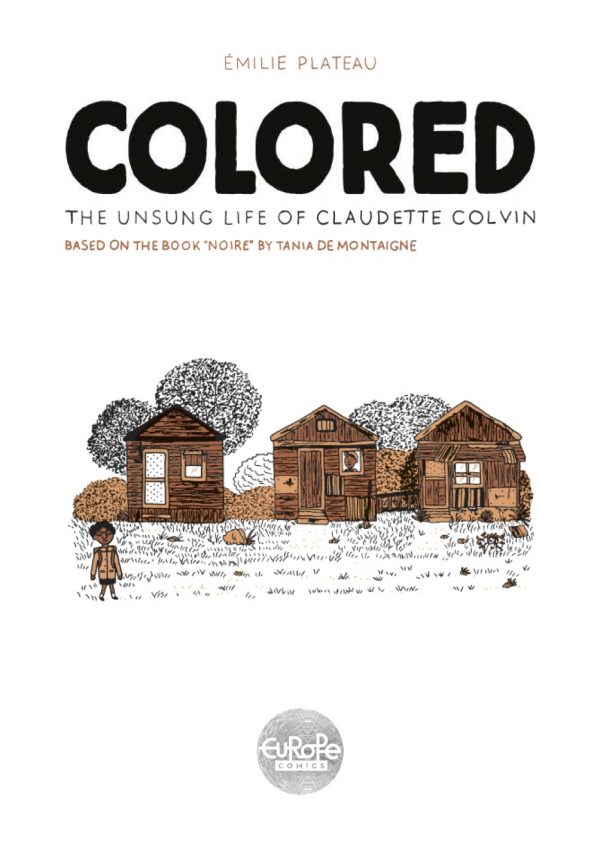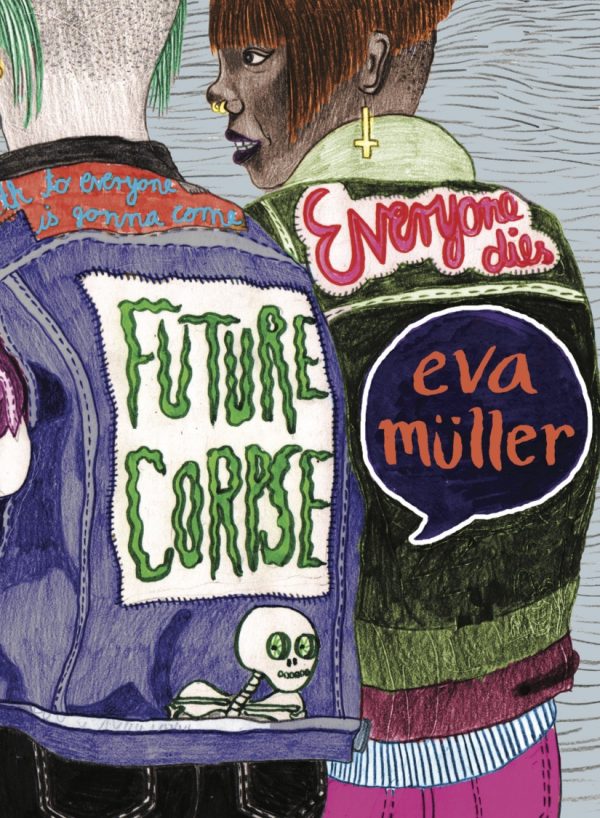Colored: The Unsung Life of Claudette Colvin
By Émilie Plateau
Europe Comics
Claudette Colvin is finally getting her day. Never heard of her? In 1955 in Montgomery AL, Colvin was arrested after she refused to give her seat to a white woman. Sound familiar? Colvin did this a few months before Rosa Parks’ historic actions, but through various circumstances found herself erased from history.
That’s all changed thanks to the efforts of Colvin and her family to get some credit, and that effort has been reflected by a number of books telling her story, including one upcoming graphic novel from First Second Books’ History Comics line. This ebook edition of the French graphic novel by French cartoonist Émilie Plateau, itself an adaptation of French journalist Tania de Montaigne’s book about Colvin.
This is a tidy adaptation that recounts the events clearly but begs the reader to put themselves in Colvin’s place, taking pains to shape the world she lived in thorough terms and help the reader transition there. This guidance to empathy seems designed especially for French readers who might not be as familiar with circumstances that are just an everyday part of American understanding, but it’s to the book’s advantage with American readers in setting a tone.
And the narrative coming from a French creator offers some aspects that might not be done by American creators, if only because we have an established tone in our presentation of race issues that this feels dissimilar to. For me, this slightly alien tone made this feel different from other civil rights books I have read, and that is accentuated by Plateau’s illustration. Presenting blocks of landscapes with tiny humans going through life’s actions in front of these blocks, Plateau softens some of the darkness with intricate charm, but also evokes the feeling that these are people whose personal lives have been seized by history and are now part of a dramatic tableau that is playing out as part of civilization’s story.
But Colvin is obviously at the center of this, and even as the action shifts to Rosa Parks, as it must, Plateau examines the male dominance that pushed her aside in her own story, as it did other women in the movement, and the moral judgement that could commandeer plain and simple truths about right and wrong. Despite it all, Colvin’s bravery and forthrightness shine through, and she seizes her story back from the world.
There are plenty of Colvin texts to choose from, but in offering something for people to whom this is the history of a foreign land, Plateau offers an outsider’s indignation and honesty to the recounting of events that stings and foists a certain shame on the reader. Even if it happened decades before you were born Plateau makes the indictment relevant and fresh. It’s the sort of presentation that challenges us to leave this story in the 1950s but act on it as if it happened the moment you read the book. That’s the kind of immediacy that’s required to move things forward.
Future Corpse
By Eva Müller
Birdcage Bottom Books
Eva Müller’s 2018 collection In The Future We Are Dead presented short works revolving around the topic of death, specifically autobiographical ones that she used to take an intense look inward with dark humor and sharp insight. In this new smaller collection Müller doesn’t have the same organizing principle, it’s more a loose compendium of work unrelated except that it all involves Müller herself, so it’s probably not the best introduction to hook you into her magnificent talent, but I still recommend it.
In the first story, Muller observes a cultural interest in the 1990s that takes her back to what Germany was really like in that era. It’s a story about exploring who you are and, in Muller’s specific experience, finding inspiration beyond the gendered terms of rebellion that are often in your immediate reach, and which sometimes obscure your view to the other possibilities that lurk just outside their rotation around your world.
“Cosmist Revolution” is a conversational piece between two people that pursues the philosophical ideas of life as private property and mortality as linked to technology, as expressed through Russian philosophy. Muller later reimagines Karl Marx as an Instagram-using millennial (though still looking like Old Karl Marx) and takes a moment to examine the rewards of buying clothes versus paying off bills. She also offers a dispatch from her artist residency in Japan, depicting her night time anxiety in terms of Japanese mythology.
If anything, the entries reflect the multi-faceted quality of Müller’s knowledge and interest and make clear that this is a complicated person committing complex ideas to comics.











